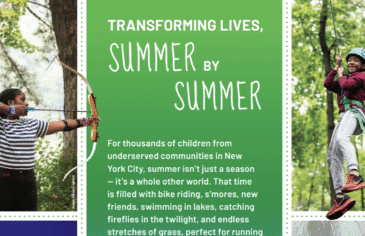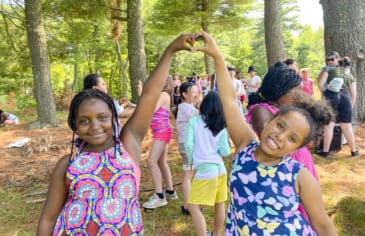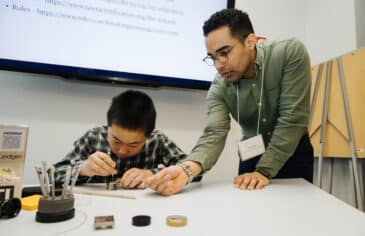An Outdoor Classroom: The Fresh Air Fund’s Sharpe Reservation Provides Hands-On Environmental Education
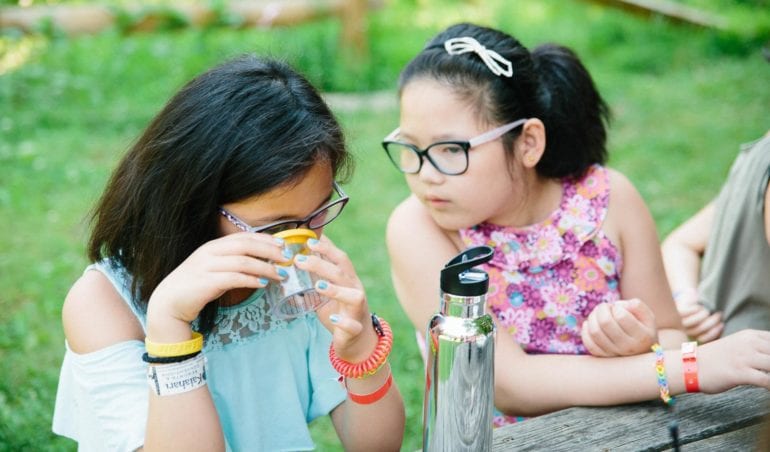
Before The Fresh Air Fund’s 2019 summer camp programs began, Tim Stanley made a call.
Tim, the assistant director of Sharpe Reservation, The Fresh Air Fund’s more than 2,000-acre wilderness property in New York’s Hudson Valley, had a question for his friend Carrie, a local pig farmer. She’d been lending animals to Sharpe’s model farm during the summer, helping to give campers from New York City exposure to animals and the opportunity to learn how to take care of them.
“The kids find the pigs fascinating,” Tim says. “So I said, ‘You know what? The pig pen is set up for a sow to have babies in and raise her piglets. Is there any way you could give me a pregnant pig and she could have babies here?’ And Carrie said yes.”
And in July, as a group of campers arrived at the farm from Camp Anita Bliss Coler, the pig had her first piglet.
“From the time the campers arrived – and they were at the farm for three hours – she had 12 babies,” Tim says. “The kids got to watch the birth happen, which was really cool. But even more importantly, the kids could just stand there and watch the pigs. You didn’t have to say a single word. They were just mesmerized by the social interactions among the different piglets and the mom, how they communicated with each other, how they maneuvered.”
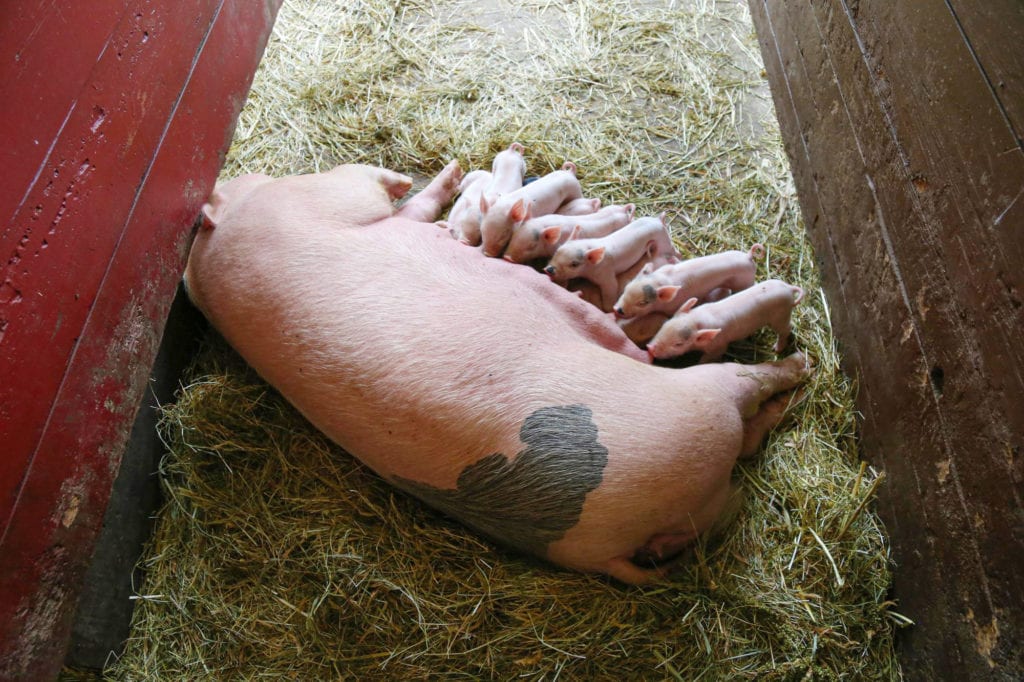
“I’ve always said nature is really the teacher,” Tim says. “We’re just the guides that lead people along. We didn’t have to say a word, but the kids were learning. Something special was happening.”
And at Sharpe Reservation, in every season, something special is happening.
Two Thousand (Plus) Acres
The Fresh Air Fund opened its first sleepaway camp in 1928 and began operating camps in several widely separated locations. In 1948, Dr. William Sharpe, donated 1,000 acres of woodland property to The Fresh Air Fund which gave The Fund a site to centralize its camping programs. Sharpe Reservation has grown to more than two thousand acres, and The Fresh Air Fund now has five of its six camps on the property.
Today, Sharpe has a year-round calendar of environmental and outdoor education programming available to Fresh Air Fund campers and surrounding communities. Close to 18,000 people from school and community groups participate in year-round environmental education programs.
Sharpe boasts a planetarium with a fully-equipped, 48-seat theater where audiences learn about constellations and the wonders of the night sky. Sharpe’s high ropes and adventure-based teams’ courses help build communication and leadership skills. Orienteering classes teach children how to read maps and use compasses. Visitors can look for signs of forest life in tracks-and-traces classes or dip nets into ponds and study the organisms that they collect. There are birding classes, interpretive hikes, forest ecology, composting lessons and in the winter there is maple sugaring.
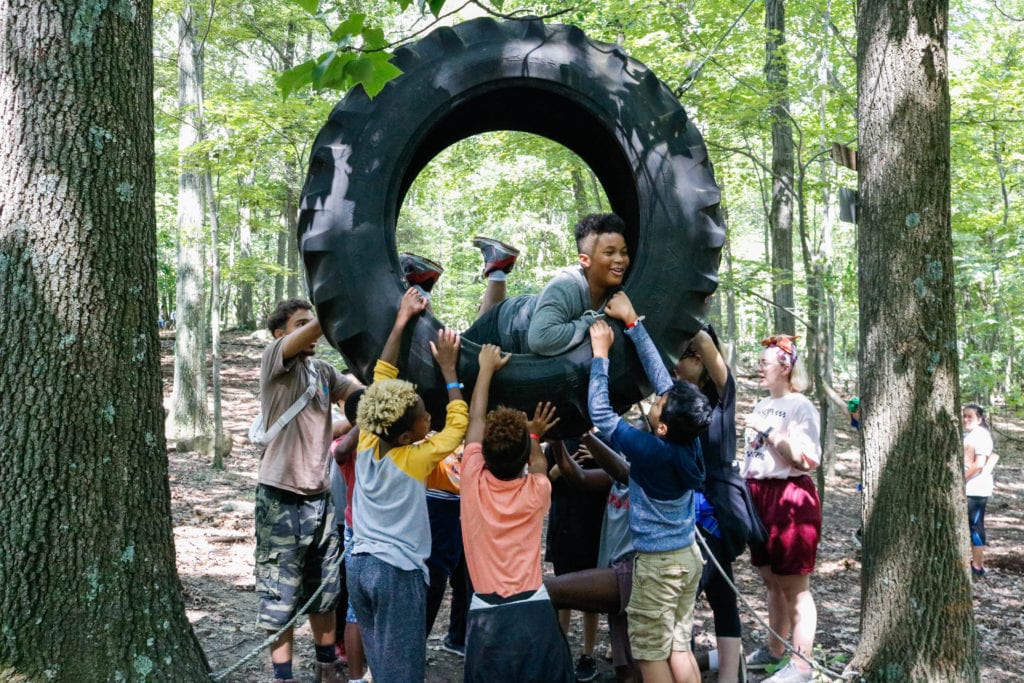
Green Matters
Now, as assistant director of Sharpe, Tim builds relationships with area schools, books visits and coordinates Sharpe’s environmental education programs. At the model farm, he brings in students and retired educators to teach classes and, drawing on his forestry experience, conducts active land management on the reservation. This year Sharpe received grant funding to employ several land conservation interns who helped remove invasive species and map the land. Tim also invited all of The Fresh Air Fund Counselors-in-Training to help with the project, too.
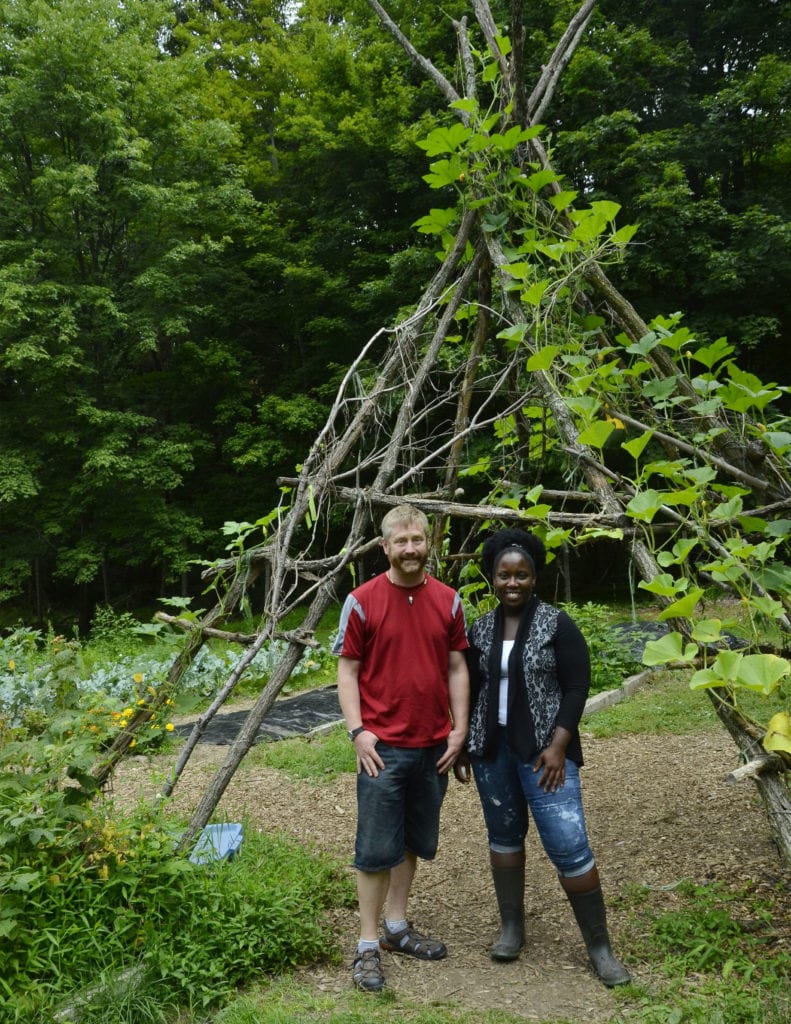
“We care for what we love,” Tim says. “If we don’t understand something, we’re less likely to protect it. That’s really why environmental education is critically important today. When you look out in the forest, you see a forest, you see green, so you think everything’s okay and healthy, but there has been a lot of change within the environment and all of our actions have a ripple effect. It’s really important for our campers, and all of us, to learn to be more responsible for the environment, because things are changing quickly. The climate is changing. The forests are struggling to adapt to that change.”
Tim says that before visitors leave Sharpe, he and his staff connect them to local farmers’ markets and green spaces in their communities (which, he says, are growing in some unexpected places in the five boroughs). Sharpe’s staff also shares everyday conservation tips about recycling, composting and responsible water use.
“That’s really what environmental education is,” Tim says, “not only learning about the environment but how you can take action on its behalf.”
And, Tim says, those who come to Sharpe find something worth preserving.
“For a lot of people, coming here might be their first connection to the natural world, to the environment, to nature,” Tim says. “After spending time at Sharpe people return home with a greater appreciation for the environment and world around them.”
Help more children experience hands-on environmental education programs at Sharpe Reservation. Make a donation to The Fresh Air Fund today.

